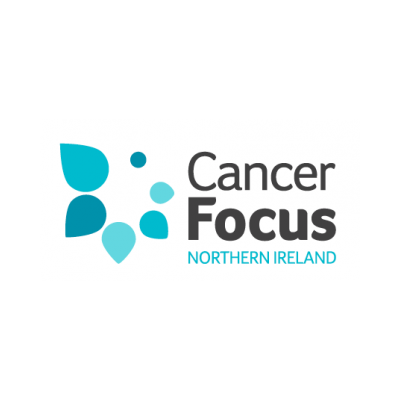Please help hit 20,000 target
Cancer Focus Northern Ireland has notched up an amazing 19,599 online pledges of support for its campaign for equal access to cancer drugs for NI patients. We'd love to hit the golden goal of 20,000 - and we can with your support at www.equalaccessni.org
Health Minister Jim Wells on Tuesday received a petition of over 19,000 online and 5,000 postal pledges of support for the Cancer Focus NI campaign for equal access to cancer drugs for local patients.
With your help, the charity can hit it's target of 20,000 online votes at www.equalaccessni.org before the lines close next week and is appealing to everyone to make their voice heard.
Allister Murphy, 58 (pictured right), from Newtownabbey, has advanced prostate cancer and has experienced first-hand the inequality of access to cancer drugs here. He said: “In 2008 when I was first diagnosed I was given two to three years to live. By taking part in two clinical trials I benefited from specialised cancer drugs, that otherwise would have been unavailable to me, and that have added nearly five years to my life. There are other men in Northern Ireland who are still denied access to these drugs. It is so unfair.
“This inequality has gone on for too long. The people of Northern Ireland are now expecting action to be taken – let’s hope the Executive does not disappoint.”
A wheelbarrow load of signatures was delivered by Cancer Focus NI Chief Executive Roisin Foster and cancer patients Vera Sanderson and Allister Murphy on the steps of Parliament Buildings, Stormont. The campaign is calling for local cancer patients to be given the same access to 40 cancer drugs as those living in England.
Speaking on the success of the campaign Mrs Foster said: “The Equal Access Campaign has resonated strongly with the Northern Ireland public and we thank them for getting behind it. The handover at Stormont represents the next phase of the campaign – the call for our Assembly to act now and put things right without further delay.
“England has had a Cancer Drugs Fund to pay for costly non-NICE approved drugs since 2011. Just this week, Scotland announced the creation of a £40m New Medicines Fund, paid for by the pharmaceutical industry under the Pharmaceutical Price Regulation Scheme (PPRS), effectively doubling its current special drugs fund giving patients in Scotland better access to expensive drugs.
“While we fully understand the pressures on the budget, there is a solution to this particular problem that needs to be seized. The PPRS is an avenue that would give much needed access to these drugs in NI with little or no extra cost to the Health Department.
“In the first quarter of this year, NI has already received a £2.89m rebate through the scheme, and a similar amount is to be expected every quarter for the next five years. We would ask that the Northern Ireland Executive establishes a similar fund, which could be adequately funded by the PPRS.”
In May the Health Minister announced a review of the Individual Funding Request (IFR). At the end of September an evaluation team was established with the review set to begin later this month. The findings of this review will be available at the end of the year, with potentially further time needed before recommendations are implemented.
Mrs Foster continued: “The time taken for this review to be put in place is precious time that our cancer patients do not have. As we wait for action to be taken the problem is growing – when we launched the campaign in June there were 38 cancer drugs that patients in NI couldn’t readily access; that number has increased to 40.
“We are also calling on the Health Minister to suspend the ‘clinical exceptionality’ clause within the IFR process immediately while the review is ongoing to allow more patients access to the drugs they need as soon as possible.”
Mrs Foster added: “The time has come for decisive action to give much improved access to drugs that can extend patients’ lives, improve quality of life and ease symptoms. We need more robust acknowledgement by the Executive that there is a major problem in access to specialist cancer drugs, and a plan of remedial action to be announced immediately.”
In May this year, Scotland suspended its ‘clinical exceptionality’ clause as part of its current drug approval system. This instantly allowed clinicians more freedom to prescribe medicines, including non-NICE approved drugs, which they believe will best help their patientsAllister Murphy (58) has advanced prostate cancer and has experienced first-hand the inequality of access to cancer drugs here.

Cancer Focus Northern Ireland
40-44 Eglantine Avenue
Belfast
BT9 6DX
United Kingdom
